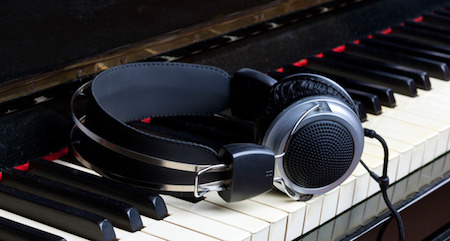Playing the piano in a busy household can sometimes be a problem. More people quit the piano because – “I don’t have time to play.”
It’s not necessarily they are too busy and are never home to sit down in play. Instead, it comes down to having the time to practice when no one else is around.
Practicing the piano isn’t like turning up your audio equipment and listening to some music.
Practice is choppy – you play slowly trying to master the tune.
Practice is repetitious – you might practice the same line over and over again.
Practice is boring – from the outside, it can be quite tedious listening to someone practice. Scales, short stanzas, and simple tunes aren’t always exciting for people listening.
Especially if those family members have an agenda of their own.
Ever had each of your kids trying to do something at the same time? One can’t concentrate on getting homework done while the other is practicing.
That’s why digital pianos are popular. You can plug in headphones and only the person wearing them will hear.
But there is another way. The silent piano is still an acoustic piano, but it has the possibility of muting the sound enough where only the person wearing headphones can here.
That’s perfect for homework sessions, or if you feel like practicing in the middle of the night.
You can usually pick out silent pianos in two ways if you visit a showroom floor.
Look for the acoustic piano with a headphone lying nearby.
Look for the acoustic piano with a console attached underneath the keyboard either on the right or left hand side. It will give you access to plugin a headphone jack with an audio-out option.
This is made possible by having the console producing sound digitally when the silent piano mode is used. Because the samples are produced using a high-quality acoustic piano, it will sound similar to when you play without the silent mode. Signals are used to go between the two units, so as you touch the keys on the keyboard, it calculates what sound to produce in silent mode.
These units also allow you to record your performance, which can be a great way of critiquing your practice sessions from time to time.
Is a silent piano the right choice for you?



